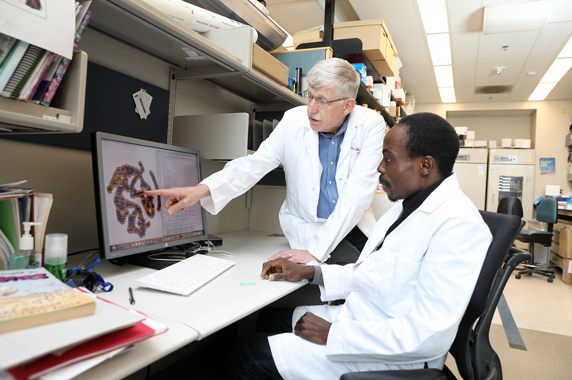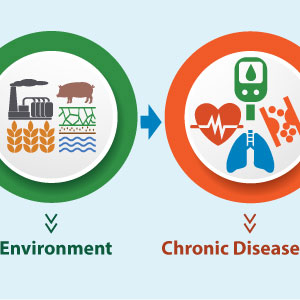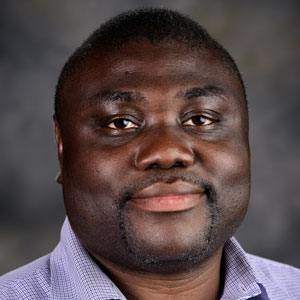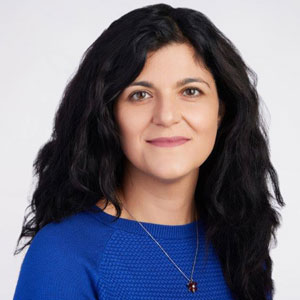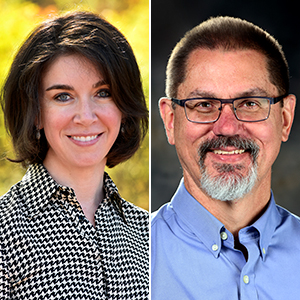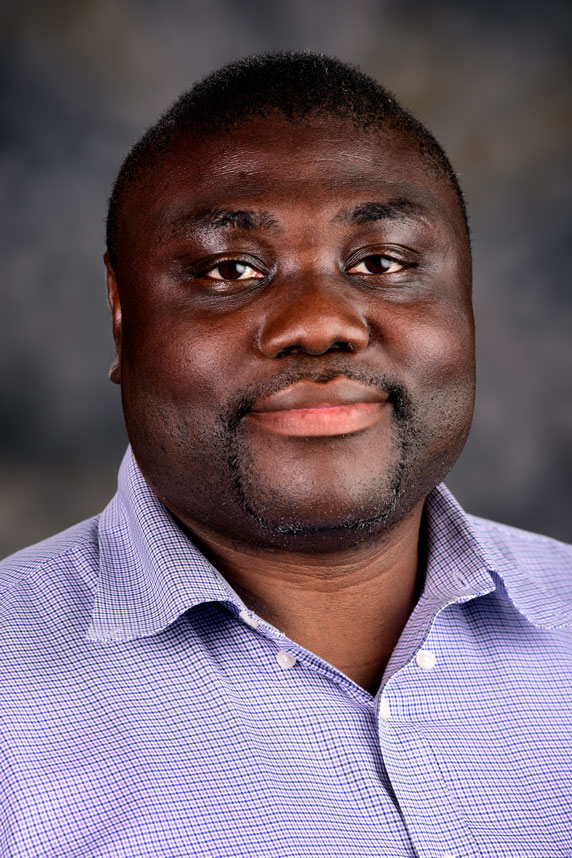 Anchang will create computational tools to examine how genes, pathogens, age, ethnicity, and cultural activities affect placental development in Nigerian women during pregnancy. (Photo courtesy of Steve McCaw / NIEHS)
Anchang will create computational tools to examine how genes, pathogens, age, ethnicity, and cultural activities affect placental development in Nigerian women during pregnancy. (Photo courtesy of Steve McCaw / NIEHS)The Chan Zuckerberg Initiative (CZI) recently awarded nearly $820,000 to Benedict Anchang, Ph.D., a Stadtman Investigator in the NIEHS Biostatistics and Computational Biology Branch, to develop the first map of placental cells from African women. The project will shed light on gene expression patterns during pregnancy and potentially reveal how environmental and social factors can influence maternal health.
Anchang is one of 16 CZI grantees expanding the ancestral diversity of tissue samples in the Human Cell Atlas, an international effort to map all cells in the healthy human body. The goal is to provide the research community with a robust biological reference point that enables breakthroughs in disease treatment for all individuals, including those from traditionally understudied populations.
CZI is a philanthropic organization that invests in scientific research, education, and community programs. It developed the Ancestry Networks for the Human Cell Atlas, through which Anchang will study placentas from ancestrally diverse Nigerian donors spanning seven tribes.
“We should be able to generate a reference reproductive and perinatal developmental cell map to learn how environmental and socioeconomic factors may affect pregnancy,” said Anchang.
His co-investigators include former NIEHS Visiting Fellow Musa Kana, M.D., Ph.D., from Kaduna State University in Nigeria, and former National Institutes of Health (NIH) fellow Idowu Aimola, Ph.D., from Ahmadu Bello University, also in Nigeria. Both Kana and Aimola participated in the African Postdoctoral Training Initiative (see sidebar).
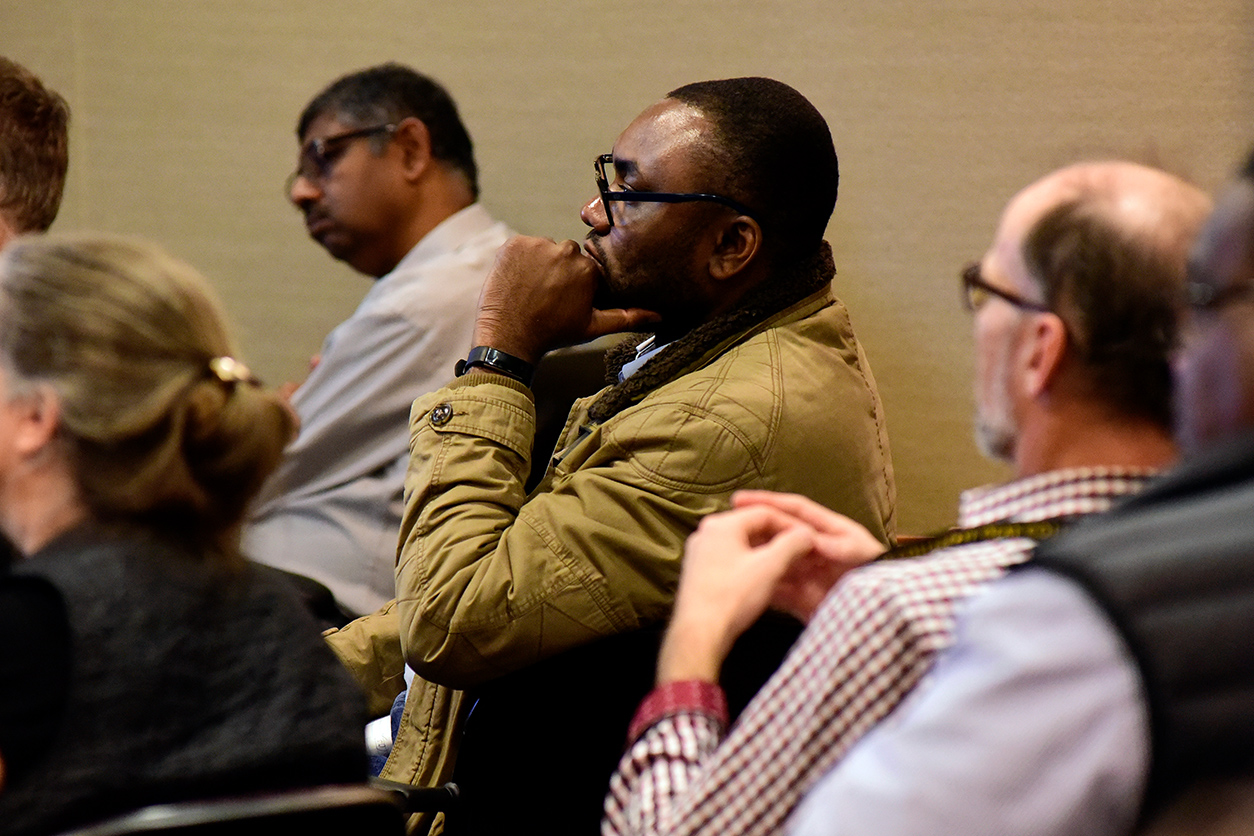 Kana (tan coat) is shown here listening intently during a 2020 lecture at NIEHS on early-life determinants of psychiatric disorders. (Photo courtesy of Steve McCaw / NIEHS)
Kana (tan coat) is shown here listening intently during a 2020 lecture at NIEHS on early-life determinants of psychiatric disorders. (Photo courtesy of Steve McCaw / NIEHS)Mapping diversity
“This study will provide much-needed reference data on gene expression patterns in African women during pregnancy,” said Alison Motsinger-Reif, Ph.D., chief of the NIEHS Biostatistics and Computational Biology Branch.
“Non-European populations are vastly underrepresented in genomic databases,” she said. “This is problematic because it may miss gene-disease relationships for which a given exposure or outcome is rare in European populations. Also, it limits the evidence base for translating these findings into clinical care in diverse populations.”
Research teams involved in the project will explore how genetic ancestry influences health and disease at the single-cell level, generating reference data from historically understudied populations, such as people who are Black, Latino, Asian, and Indigenous.
 Mark Zuckerberg, left, and his wife Priscilla Chan, right, are cofounders and co-CEOs of the Chan Zuckerberg Initiative. (Photo courtesy of CZI)
Mark Zuckerberg, left, and his wife Priscilla Chan, right, are cofounders and co-CEOs of the Chan Zuckerberg Initiative. (Photo courtesy of CZI)“To create effective treatments and cures for all people, the biomedical community must work to increase representation in scientific research,” said Norbert Tavares, Ph.D., program manager for the Single-cell Biology program at CZI.
Single-cell approaches are revolutionizing research into biological systems and processes, and they are helping to advance personalized disease treatments, according to Anchang, who holds a joint appointment at the National Cancer Institute.
Improving maternal health
Compared with women in advanced nations, Nigerian women are 500 times more likely to lose their lives in childbirth, noted Anchang. He added that any deviation in either the maternal or fetal cells that develop during pregnancy can result in high-risk maternal disorders.
“Disparity in these outcomes is driven by ethnic, cultural, and socioeconomic factors, especially in the northern and north-central regions of Nigeria,” Anchang explained.
His team will characterize key features of the major cell types that make up the maternal blood and placental systems and study the dynamic interplay of those cells during pregnancy.
“By profiling the expression of spatial regions of the placenta, we will be able to assess the cellular effects of environmental and socioeconomic factors during normal and abnormal pregnancy across different global ethnic groups,” Anchang said.
Also, computer-based tools will be developed to analyze the short- and long-term effects that environmental factors may have on pregnancy, he noted.
Learn more about all of the projects funded by the CZI Ancestry Networks for the Human Cell Atlas. The grant awards were announced at the 2021 National Diversity in STEM (science, technology, engineering, and math) Conference, which was hosted by the Society for Advancement of Chicanos/Hispanics and Native Americans in Science.
(Jennifer Harker, Ph.D., is a technical writer-editor in the NIEHS Office of Communications and Public Liaison.)





